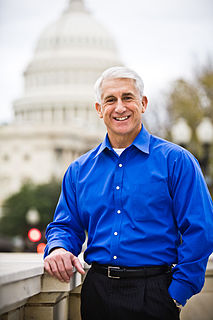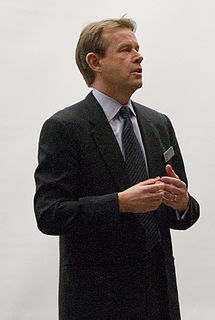A Quote by Yehuda Levi
In North America and Western Europe, ten percent of the population of the world consumes fifty percent of its energy.
Quote Topics
Related Quotes
I remember Secretary of State [George] Shultz one day saying that America is an economic model for the world. I replied to him that America represents 5 percent of the world's population and consumes 30 percent of the world's energy. What if everyone in the world lives like Americans? Where do we get the energy for this standard of living?
The second reason why we haven't observed the growing gap is that our historical and social science analyses have concentrated on what has been happening within the 'middle classes' - that is, to that ten to fifteen percent of the population of the world-economy who consumed more surplus than they themselves produced. Within this sector there really has been a relatively dramatic flattening of the curve between the very top (less than one percent of the total population) and the truly 'middle' segments, or cadres (the rest of the ten to fifteen percent).
Only 1 percent of the homosexual population in America will die of old age. The average life expectancy for a homosexual in the United States of America is 43 years of age. A lesbian can only expect to live to be 45 years of age. Homosexuals represent 2 percent of the population, yet today they're carrying 60 percent of the known cases of syphilis.
Fifty percent of the world's population lives in cities. In a couple of decades, 70 percent of the world's population will be living in cities. Cities are where the problem is. Cities are where the solution is, where creativity exists to address the challenges and where they have most impact. This is why, in 2005, the C40 was founded, an organization of cities that address climate change. It started with 18 cities; now it's 91. Cities simply are the key to saving the planet.
The Hispanic population grew by 4.7 percent last year, while blacks expanded by 1.5 percent and whites by a paltry 0.3 percent. Hispanics cast 6 percent of the vote in 1990 and 12 percent in 2000. If their numbers expand at the current pace, they will be up to 18 percent in 2010 and 24 percent in 2020. With one-third of Hispanics voting Republican, they are the jump ball in American politics. As this vote goes, so goes the future.
The money economy thus leaves a large ecological footprint, defined as the amount of land and resources required to meet a typical consumer's needs. For example, with only about 4% of the world's population, the United States, the largest money economy, consumes in excess of one-quarter of the world's energy and materials and generates in excess of 25 percent of the world's greenhouse gas emissions.

































